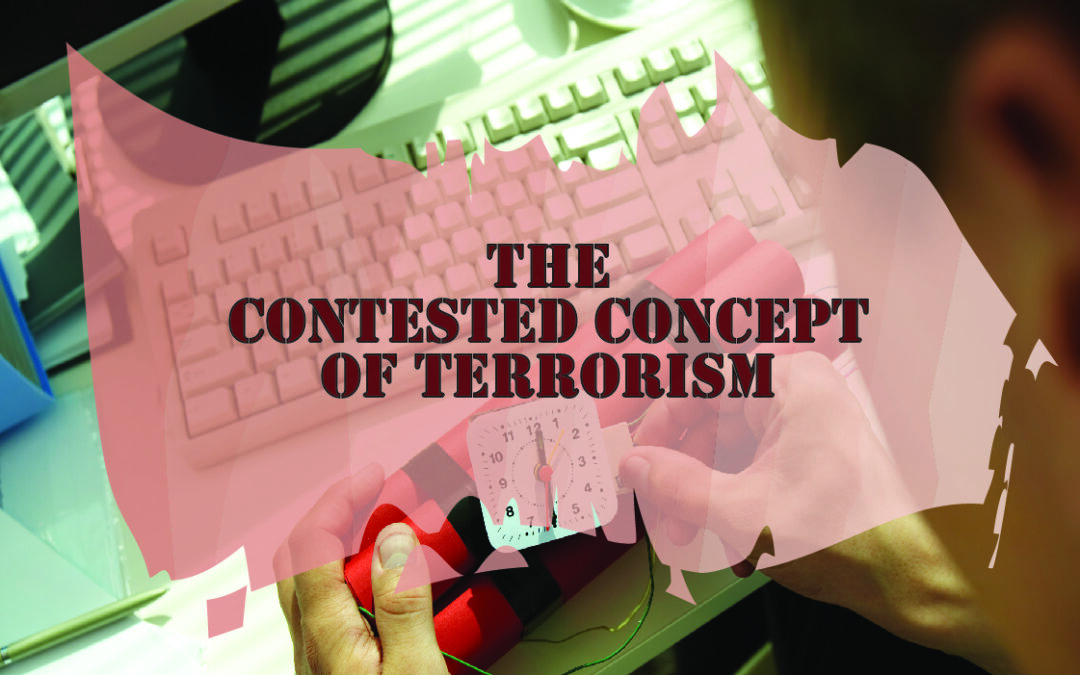The Contested Concept of Terrorism
Paul Shemella is a retired Captain of the U.S. Navy SEAL who dedicated most of his military service to planning and executing counter-terrorism operations in regions like Latin America and Europe. Over the last decade, Paul Shemella passionately worked with partner countries across the globe to develop strategies and capacities to fight against terrorism. He conducted seminars and workshops on civil-military responses to national security threats in over 145 countries, and he wrote and published several trailblazing books on terrorism and maritime security.
With his extensive experience, Paul Shemella has developed a thorough understanding of the many forms of terrorism that societies must face in maintaining human security. In his book entitled Fighting Back: What Governments Can Do About Terrorism, particularly, Paul Shemella tackled the complex problem of terrorism, and offered a guide to formulating solutions that can work beyond the intricate and differing structures and processes of governments.
There is no single approach that fits every society – this is a challenge that Paul Shemella himself recognized in his literary works. This challenge stems from the reality that societies vary widely, and from the fact that terrorism per se has no universally accepted definition. Various legal systems and government agencies use different definitions when pertaining to the term. As a result, terrorism has been a contested concept for many years.
Why is terrorism a contested concept?
Terrorism is a global menace. Over the past decades, it has evolved into a modern plague that metastasizes to every part of the world. There is a long list of terrorist actions across countries, which has led to enormous sufferings, fear, and the indiscriminate slaughter of humans. However, despite its ever-increasing presence, terrorism remains such an ambiguous concept. There is still no clear definition as to what constitutes terrorism at present. This issue stems primarily from two difficulties.
First, it is difficult to formulate a definition of terrorism that takes into account the different perceptions that arise from every terrorist incident. This is particularly the essence of the aphorism, “One man’s freedom fighter is another man’s terrorist.” History, for example, is filled with narratives of changing perceptions – individuals, who were once described as terrorists for using arms against monarchs and tyrants or for combating colonial oppression and enslavement through force, are now being honored as freedom fighters, heroes, and martyrs. Ultimately, any attempt to define terrorism with precision always tends to succumb to bias.
Second, there is a difficulty when it comes to determining whether terrorism must be limited to actions against civilians or whether it should extend to governmental forces, particularly the military. Generally, the conception of terrorism has been mostly, if not entirely, limited to indiscriminate attacks on civilians, the purpose of which is clearly to inspire terror and to influence the public or the government to forward a certain agenda. However, for the past years, civilians have not been the sole target of terrorist attacks. Government and military forces are also being targeted by terrorists, as is the case of the terror attack on a military base in Kenya or the jihadist assault against soldiers in Niger. Despite this, however, attacks on government forces are not widely acknowledged as terrorism. Many international agreements on terrorism do not cover these attacks, and the definition of terrorism by some countries particularly exclude attacks on military targets.
Is it necessary to have a single definition of terrorism?
According to Paul Shemella, a universal definition of terrorism is elusive because most governments, influenced by local context, define it differently. Indeed, there are many internal as well as external factors that should be considered when defining terrorism. Sometimes, these factors even conflict with one another, hence making the formulation process more difficult. With this, one may ask, “Is it really necessary to come up with a single definition of terrorism?” The answer varies once again.
On one hand, some people believe that a common definition of terrorism is necessary because it helps governments come up with acceptable, effective, and viable counter-terrorism strategies. The value of a common definition is particularly recognized by the international community. Currently, there exists a large body of international law prohibiting activities related to terrorism that individual states commonly use as a basis for diplomacy and justice. These laws help governments decide on how to respond properly when seemingly terrorist attacks are carried out against their interests. However, still, these laws do not provide a clear-cut definition of the concept of terrorism.
On the other hand, some people are not quite convinced that a common definition of terrorism is necessary nor possible. Instead of a single definition of the concept, what is needed are multiple definitions the breadths of which vary according to context and to the particular power exercised. The reason for this is that, in realist terms, having a clear legal definition of terrorism does not guarantee credence and uniformity. Governments will still deviate from such definition whenever it is advantageous. As Conor Gearty has put it, “terrorism is far too useful a term for governments for it to be controlled.”


Recent Comments